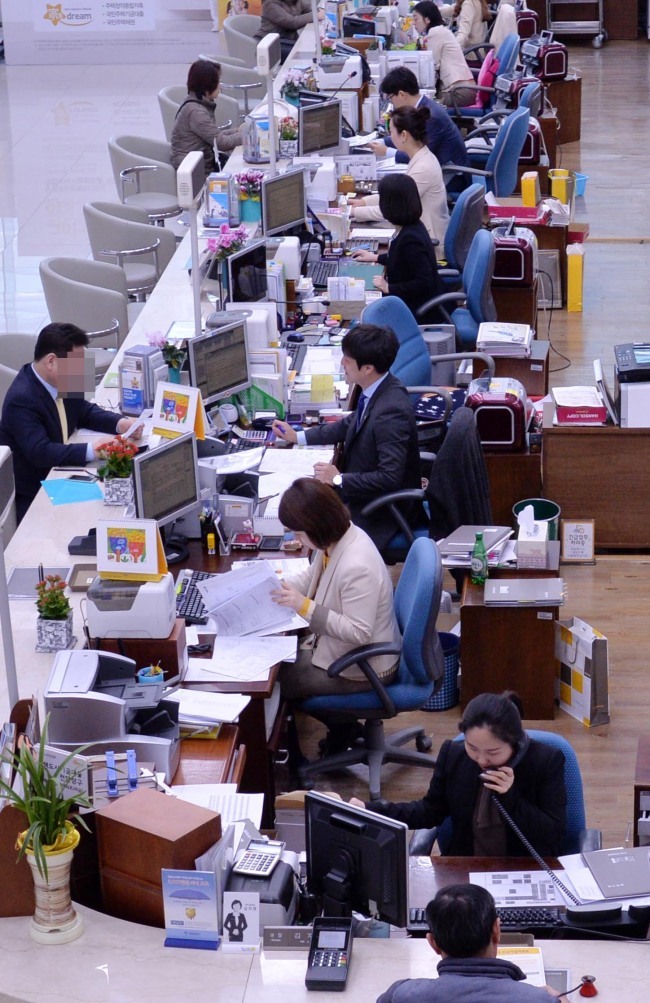The Financial Supervisory Service said Sunday it has been in talks with the Financial Services Commission to raise the attention of the debts of the self-employed.
The FSS and the FSC are reportedly focusing on breaking down the debts owed by the self-employed and helping the Moon Jae-in administration tackle and contain the rise of household debt. The government is set to announce a comprehensive measure against skyrocketing household debt in August.
In doing so, the FSS is currently drawing up a new set of data on the debts of the self-employed that is updated from the previous one gathered by the Bank of Korea in March. The FSS in February had launched a taskforce devoted to the debts of the self-employed.
The amount of debt owed by the self-employed is expected to be higher than the central bank’s earlier estimate.
 |
(Herald DB) |
The BOK’s estimate as of 2016, which stood at some 480 trillion won ($421.6 billion), was only limited to those of borrowers of business loans and borrowers of household loans who had received business loans.
But the fresh estimate will add household debt of the self-employed who had not received business loans.
The BOK’s regular estimate has already shown a steady rise in debts of the self-employed showing a 51.4 percent rise in five years. It rose to 480 trillion won in 2016 from 318 trillion won in 2012.
The self-employed in South Korea owed some 520 trillion won as of the end of 2016, and more than 30 percent of such loans came from non-banking lenders which demand higher interest rates, according to Yonhap News Agency’s report Sunday. But the FSS said Sunday the aggregation of the data has yet to be complete.
The persistently rising debts raised the need for the financial authorities to prioritize tackling the household debt of the self-employed, who are vulnerable to business fluctuations and to the market rate hikes.
Some 5.4 million South Koreans are self-employed as of the end of 2016. The self-employed often run businesses in sectors such as food, retail, manufacturing, as well as real estate leasing services.
Debts of the self-employed accounted for more than 35 percent of the entire household debt at 1344.3 trillion won, according to the BOK data.
Aiming to tackle the rise in the self-employed Koreans’ borrowings from nonbanking institutions, the FSS is also reportedly poised to launch Monday its inspection on mutual savings lenders and cooperative banking institutions.
South Korea‘s self-employment rate came to 25.9 percent in 2015, 9.4 percent higher than the average of the 38 economies surveyed by the Organization for Economic Cooperation and Development.
By Son Ji-hyoung (
consnow@heraldcorp.com)








